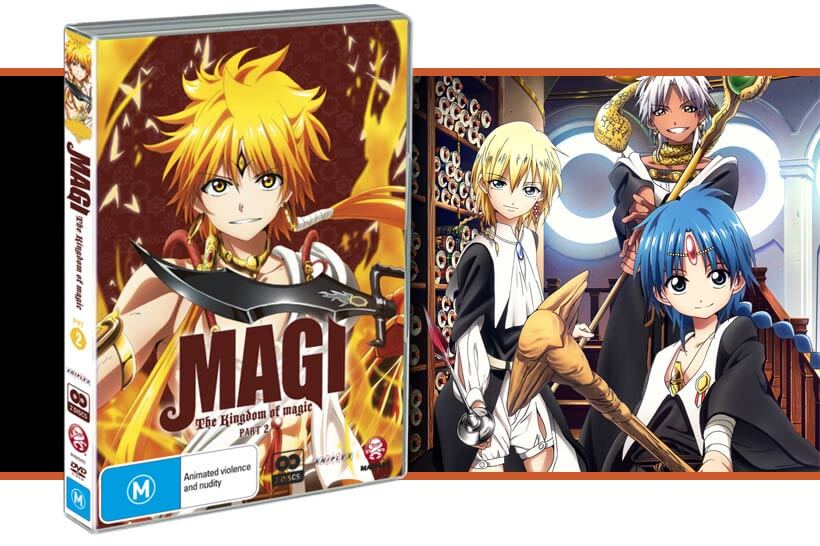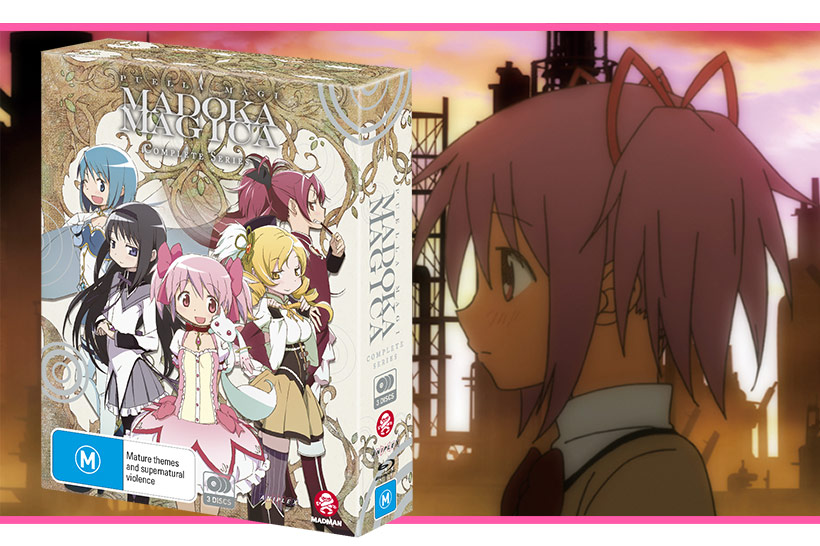After watching the first season of Magi: The Labyrinth of Magic on Netflix earlier in the year I was left a little ambivalent about the series. It started off as a rollicking shounen adventure in an engaging fantasy setting with fun costumes and character designs. It followed a trio of friends – Aladdin, Alibaba and Morgiana – who clear Dungeons, go on adventures and generally seem destined for greatness.
However, about halfway through the first season it became bogged down in talking, talking and more talking. It was like being stuck in a room for hours with that one guy who loves talking about politics that nobody cares about. It took me months to get around to completing it, but season 1 rallied right near the end with the culmination of events involving Cassim, and managed to get me more engaged and invested in the characters than I had been for the entire season.
It was with that sort of love-hate view of Magi that I came to watch season 2, The Kingdom of Magic part 1. Straight away I was relieved to see that the boring politics had been shelved and everything was more action- and character-oriented. Aladdin, Alibaba and Morgiana split up to each set out on their own journey of self-improvement and discovery.
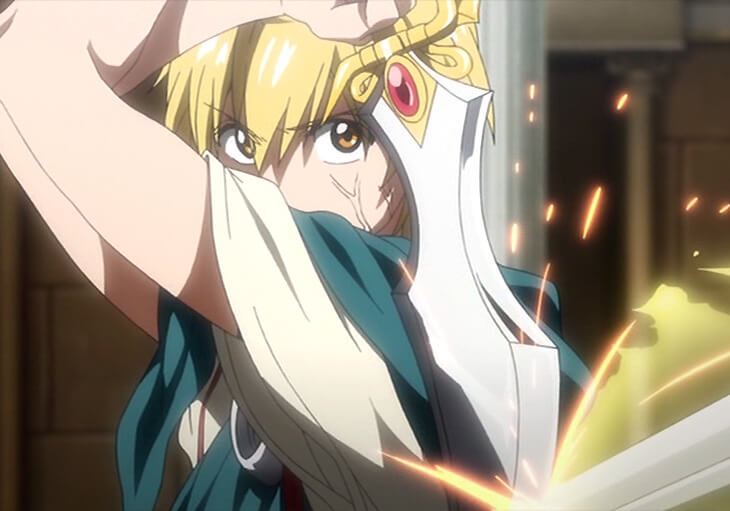
Aladdin goes to enrol in a school of magic to study and improve his abilities, as well as seeking to find out the true nature of the relationship between the country of Magnostadt and the evil organisation Al-Thamen. Alibaba travels to train as a gladiator to master his Djinn Equip and learn how to control his magoi, and Morgiana finally travels to her homeland in the Dark Continent to discover her roots. Hakuryuu, who has become an increasingly important character in the series, returns to the Kou Empire on a revenge mission. It was a bittersweet splitting of the four friends, but the motivations for their actions are strong and by following four separate stories the series remains interesting. We can see the characters growing individually and look forward to their eventual reunion.
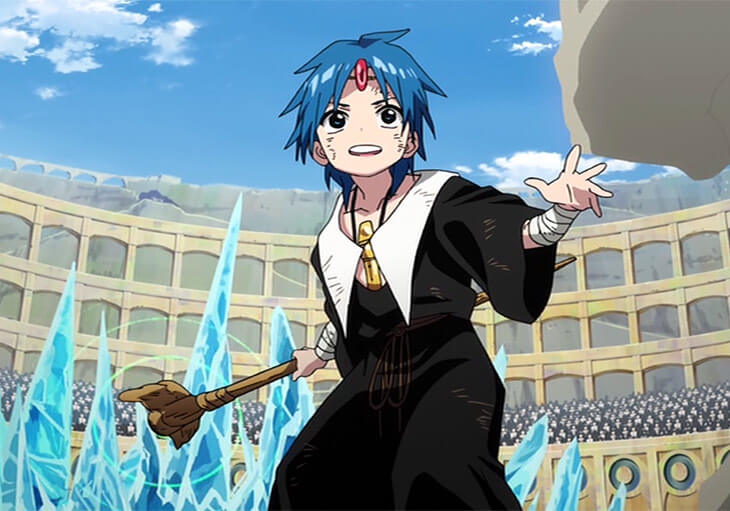
One of the most powerful themes of this series to me is the way Cassim continues to matter to Alibaba. The events involving his childhood friend in the end of the first season affect him deeply and continue to be a key driver of the plot. Most importantly, Hakuryuu’s character arc, his struggles with horrible mother issues, and increasing levels of darkness and badassery are particularly compelling. He’s one of those characters that’s always getting beaten down, and everyone loves a good “giving in to the Dark Side of the Force” story.
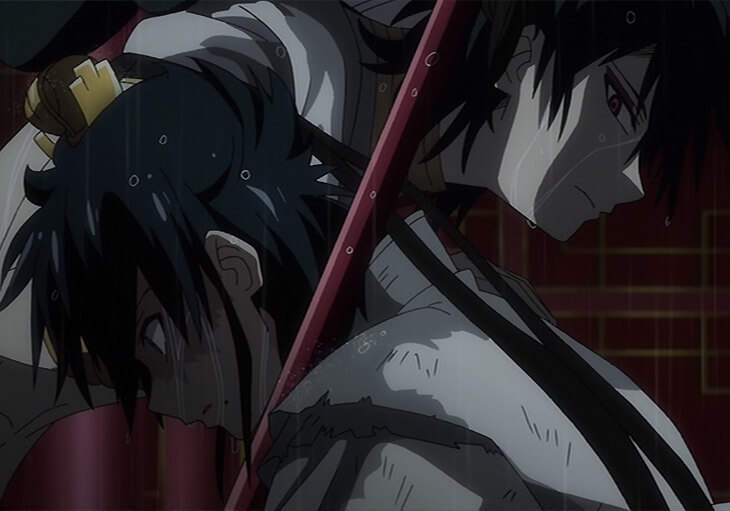
As with the first season the comedy is great and causes quite a few giggles, and I’m now used to Alibaba’s love of bosoms so that it no longer weirds me out so much to see a very young-looking boy jumping onto women. (Although just writing about it has reminded me that it’s still pretty gross!) The animation is pretty, possibly more so than before, and the spell effects and action remain spectacular. I watched the Japanese language DVD version, which looked great visually, but there were a lot of typographical errors in the English subtitles. The subs featured several jarring typos each episode for the first six or so episodes, which would have easily been detected by a simple spell check, though they seemed to have established better quality control near the end.
All in all, Magi: The Kingdom of Magic part 1 firmly got me back on board for this series. Whereas before I floundered for months trying to find reasons to finish watching the first season, I’m now very much compelled to find out what happens to Hakuryuu in part 2. (Oh, and the other characters as well I guess. But mostly Hakuryuu. Poor, poor Hakuryuu.)
A review copy was provided by Madman Entertainment to the author for the purpose of this review.


